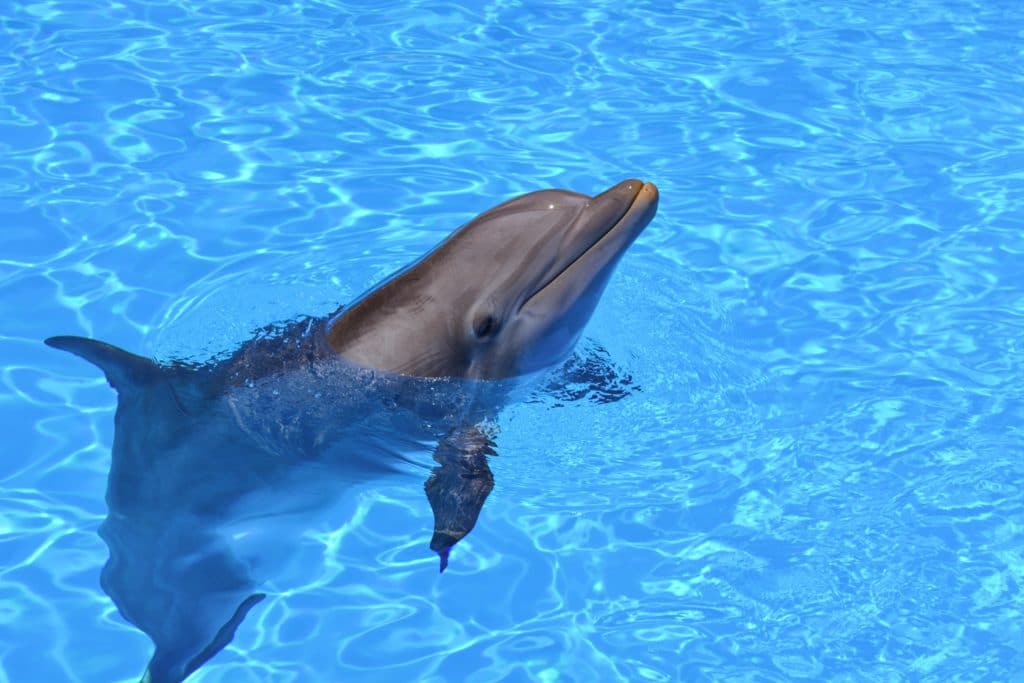 When I was a teenager, I visited SeaWorld in Queensland, Australia and saw there was the option to actually meet and touch a dolphin. Being an animal lover, I couldn’t believe I could have this opportunity to be so close to such beautiful intelligent animals. But something didn’t seem right to me, even then. I decided against the experience, even though it seemed the dolphins were smiling for each photo, happy to be hugged and kissed by the many people screaming and laughing around them.
When I was a teenager, I visited SeaWorld in Queensland, Australia and saw there was the option to actually meet and touch a dolphin. Being an animal lover, I couldn’t believe I could have this opportunity to be so close to such beautiful intelligent animals. But something didn’t seem right to me, even then. I decided against the experience, even though it seemed the dolphins were smiling for each photo, happy to be hugged and kissed by the many people screaming and laughing around them.
Today, I look back and am so grateful my instinct stopped me from following the crowd and paying money towards this cruelty.
After reading the book “Rescuing Ladybugs” by Jennifer Skiff, I learnt the horrifying truth behind the smile of a dolphin. By digging deeper and learning more I felt it necessary to share my knowledge and increase awareness of this issue. Together we can stamp out this cruel and unnecessary practice.
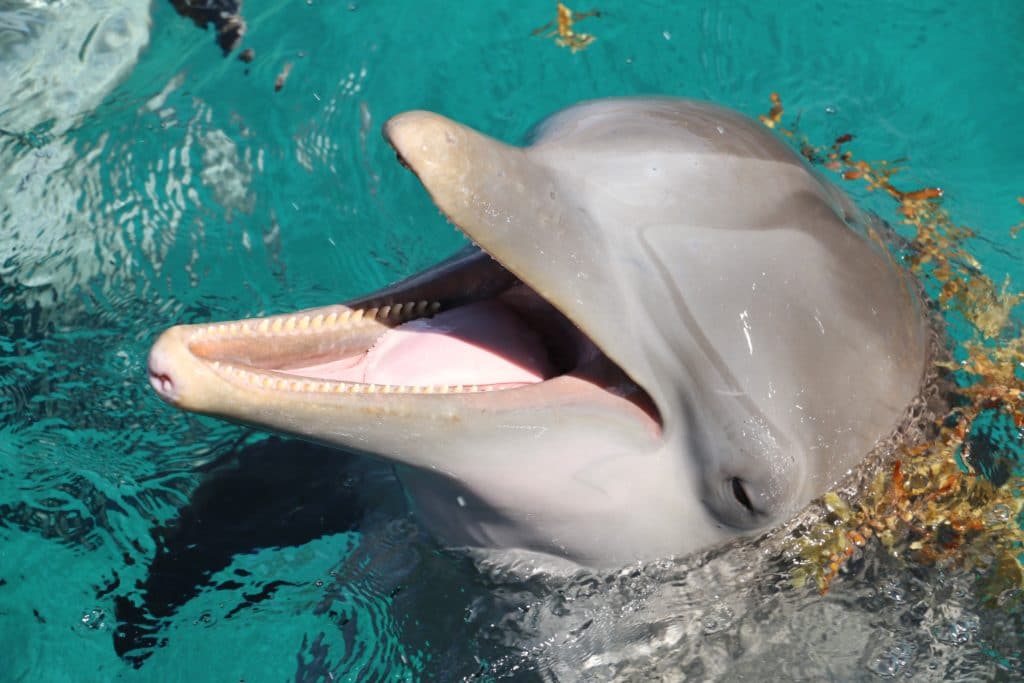 The movie and TV series ‘Flipper’ caught the hearts of so many of us. But it is also to blame for the rise in dolphinariums/ seaquariums and the two-billion-dollar business it generates.
The movie and TV series ‘Flipper’ caught the hearts of so many of us. But it is also to blame for the rise in dolphinariums/ seaquariums and the two-billion-dollar business it generates.
Have you ever heard of Taiji a small fishing town in Japan? Well, for dolphins and whales it is a terrifying nightmare. From 1st September till the end of February the Taiji slaughter occurs.
Dolphins have been passing this area of Japan as part of their migratory route for years. After the summer tourist season has ended, the disgusting cruel slaughter begins.
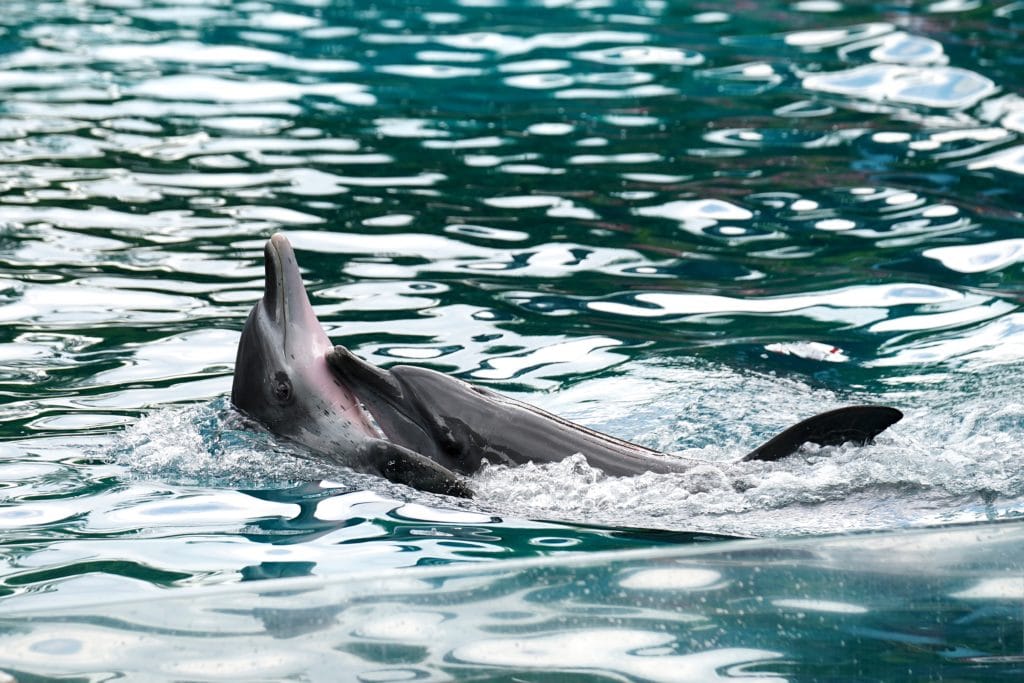 The fishermen go out each day during this period and use long metal poles attached to their boats, which trail deep in the water. They bang on the metal, causing a sensory disaster for the dolphins who use sound to communicate. The boats herd the confused and disorientated dolphins into a small shallow cove where a net is used to prevent their escape.
The fishermen go out each day during this period and use long metal poles attached to their boats, which trail deep in the water. They bang on the metal, causing a sensory disaster for the dolphins who use sound to communicate. The boats herd the confused and disorientated dolphins into a small shallow cove where a net is used to prevent their escape.
The following day after the dolphins have had time to calm down, trainers from dolphinariums and seaquariums around the world come and choose which dolphin they want. One live dolphin is worth $155,000.
The live dolphins are then transported onwards to endure a lifetime of captivity away from their family and the ocean, just for our entertainment and apparent “education”. This industry believes keeping dolphins captive will allow more people to see and understand dolphins and thus become more respectful of animals and nature.
I disagree. The environment we see these animals when in captivity is so unnatural, how could we possibly understand them better. The industry itself is hiding how they obtained these animals. How can they teach respect, if they don’t even know the concept of the word?
Holding these animals captive has absolutely nothing to do with saving dolphin populations in the wild, but everything to do with money and greed.
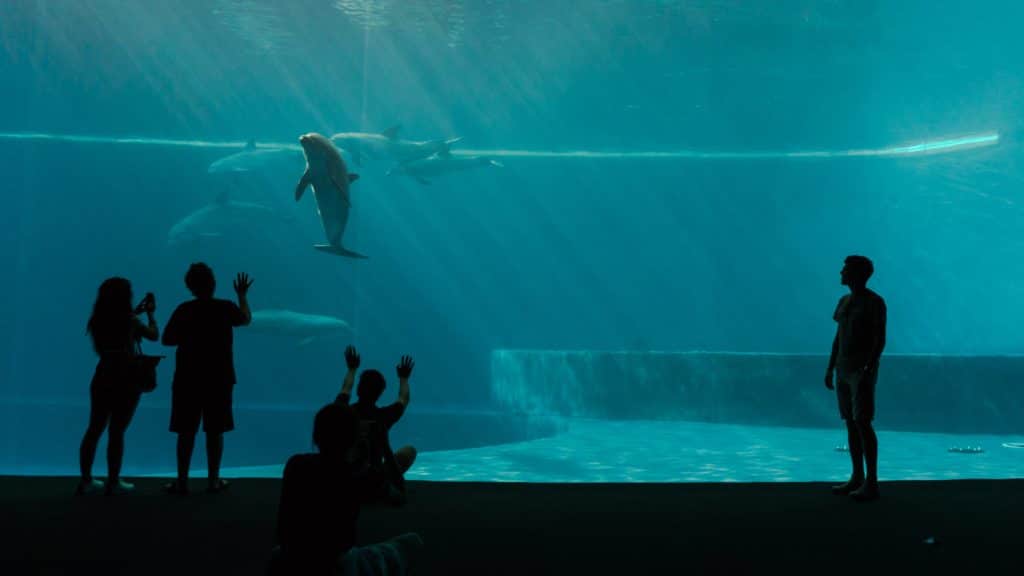 The dolphins who are not selected, instead of being released back into the ocean, are tragically butchered via the most inhumane method.
The dolphins who are not selected, instead of being released back into the ocean, are tragically butchered via the most inhumane method.
The fishermen enter the water on small boats, repeatedly driving a type of spear into the water. Hoping to injure and eventually kill each and every dolphin. The dolphins are stabbed over and over, they are terrified, thrashing around, suffering immeasurable pain, bleeding out, trying to escape, watching and hearing their family including babies endure the same agony.
Eventually, they all die. By the end of the slaughter, the water turns a crimson red and there is an eery silence. The dead dolphins are then fished out of the water, so their meat can be prepared and sold in supermarkets. Sometimes labeled as whale meat.
This cruelty is as unnecessary and racist as the Holocaust was for millions of people. The Rwandan genocide and many other wars where people have been brutally killed at no fault of their own is what the dolphins are experiencing today.
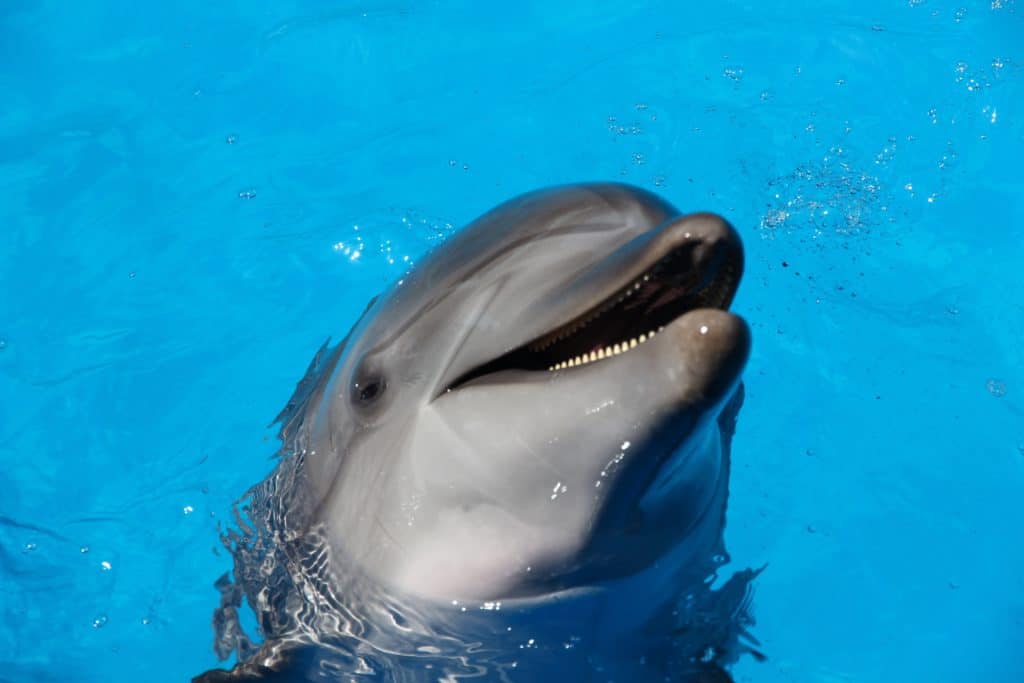 Ric O’Barry, the man who trained the dolphins who played Flipper, is the very man who has spent the last forty-eight years trying desperately to free every last captive dolphin and educate as many people as possible to bring an end to dolphin exploitation and slaughter.
Ric O’Barry, the man who trained the dolphins who played Flipper, is the very man who has spent the last forty-eight years trying desperately to free every last captive dolphin and educate as many people as possible to bring an end to dolphin exploitation and slaughter.
In his captivating, raw, intense, heartbreaking and emotional documentary “The Cove” you will witness the horrific slaughter that he and his team were able to expose to the world. They risked their lives to gain illegal access to the cove in Taiji to bring this issue to light and to save future dolphins from the same fate.
Dolphins belong in the wild, with their family, not in captivity, entertaining us. You must watch this documentary. Don’t hide from the truth, don’t tell me you won’t be able to handle it. By watching it, it will make you have a greater drive to be an effective activist for these animals. Someone who they truly need on their side!
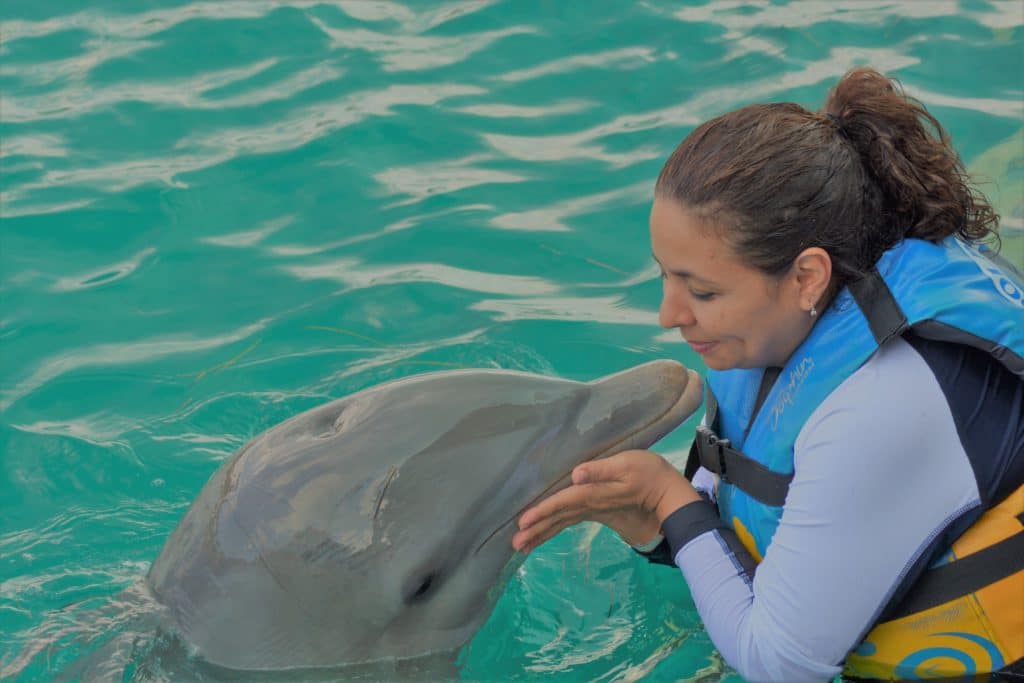 Have you had an encounter with a captive dolphin? Have you watched them perform? I am sure you would agree, that they looked happy and content, singing and smiling throughout their performance. Unfortunately, this is so far from the truth.
Have you had an encounter with a captive dolphin? Have you watched them perform? I am sure you would agree, that they looked happy and content, singing and smiling throughout their performance. Unfortunately, this is so far from the truth.
Dolphins are extremely intelligent, hence why they are perfect candidates for captive entertainment. They understand commands fast, but their intelligence also means they suffer greatly in this type of environment.
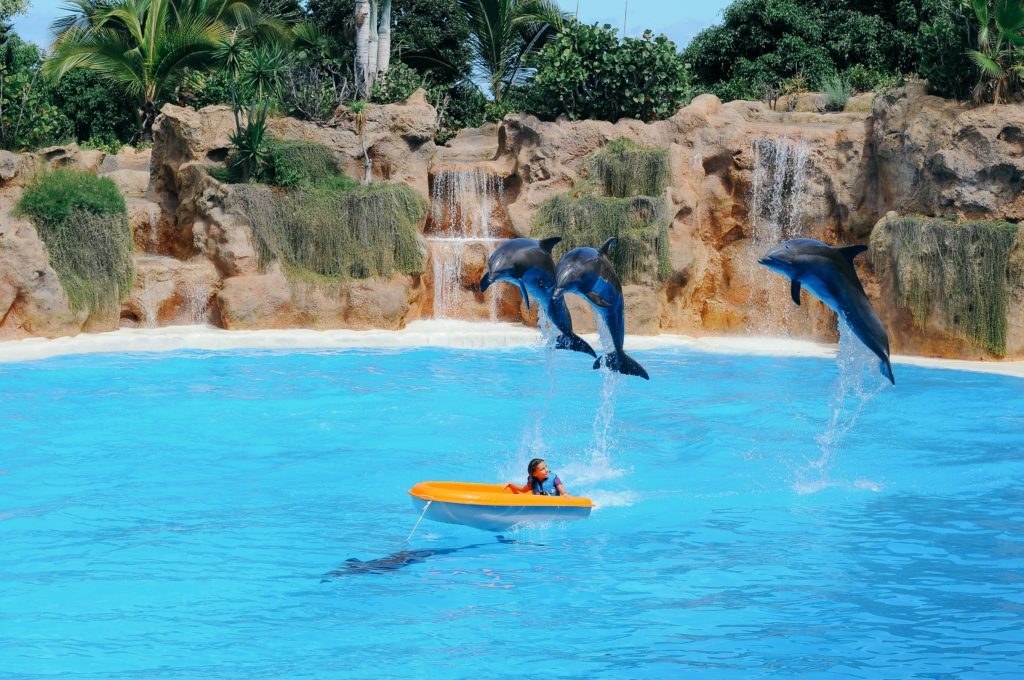
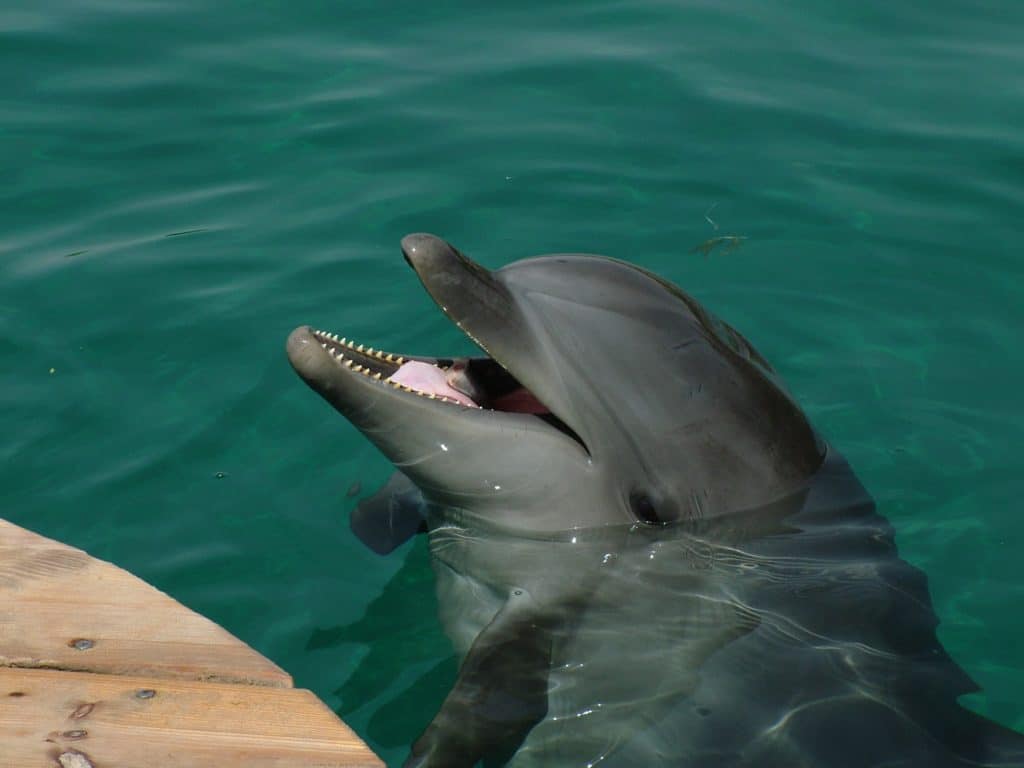 They often live alone, in a small concrete tank. Unable to swim the distance they would in the wild. They live 24hours a day in the chlorinated water. This affects their skin and eyes, eventually causing blindness. When we go to the swimming pool and spend a few hours in chlorine our eyes sting, imagine how the dolphins feel. They develop mouth ulcers from stress and are depressed, as they are living an unnatural lifestyle. Most die a premature death due to these conditions.
They often live alone, in a small concrete tank. Unable to swim the distance they would in the wild. They live 24hours a day in the chlorinated water. This affects their skin and eyes, eventually causing blindness. When we go to the swimming pool and spend a few hours in chlorine our eyes sting, imagine how the dolphins feel. They develop mouth ulcers from stress and are depressed, as they are living an unnatural lifestyle. Most die a premature death due to these conditions.
The worst part of it all, in order for the dolphins to follow commands and learn new tricks, they are starved. The only time they receive food is as a reward for performing a trick. They are literally food deprived.
Their open mouth “smile” is them begging for food. What we see is an illusion, they are not smiling and they are not happy. How could they be? They are literally dying to entertain us.
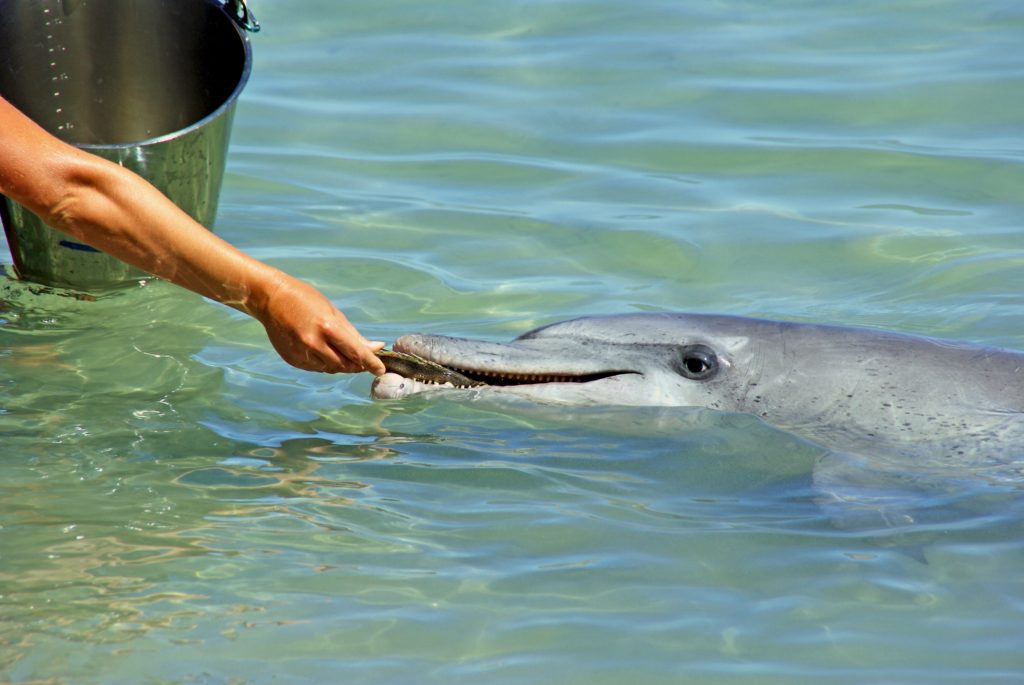 What animal wants to be held in captivity, separated from their family and forced to perform for food?
What animal wants to be held in captivity, separated from their family and forced to perform for food?
The captivity of animals is based on supply and demand. Thus as consumers, we have the power in our hands to end this abuse.
#DontBuyATicket is the simplest hashtag to increase awareness and stop dolphin exploitation.
Don’t pay money to support these places who hold dolphins captive.
Please don’t pay to have your photo taken with a dolphin or any captive animal for that matter.
Don’t pay to watch them perform.
Please, I beg you.
The following organisations are also advocating for their release and for this abuse to stop in the waters of Japan and other parts of the world. Visit these websites, learn as much as you can and then pass on your knowledge. Dolphins need more people on their side.
International Marine Mammal Project
The Oceanic Preservation Society
Unless we learn to voice our opinions, create awareness and put pressure on those in power to stop this trade, it will continue.
We are their greatest threat, yet we are also their only hope.
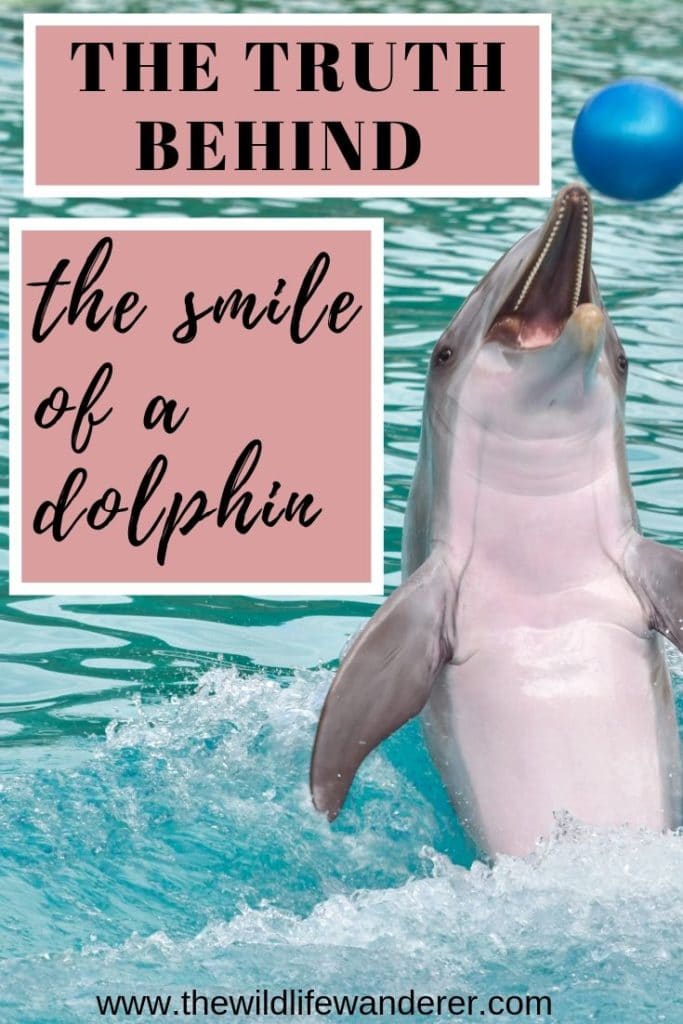
It’s saddening how cruel and barbaric these people are to dolphins. Stabbing them until they die is horrid. I don’t even know who someone can do that. And starving them isn’t any better. I never knew it was this bad.
I’m upset by the unnecessary cruelty done not only to Dolphins but other creatures as well. We are the stewards of the Earth and it is our responsibility to care for God’s creatures using them accordingly.
Absolutely, it is horrid, cruel and barbaric, and yes we have a responsibility to treat all animals and human beings with respect. I wrote this article to bring this subject to light, so that together we could shine a light on the situation and make a difference.
That is so enlightening. Dolphins are beautiful and should only be in their environment.
Thank you for sharing this story.
Thank you for reading and taking the time to comment. They are such beautiful, intelligent animals. It saddens me these animals suffer in this way, but hopefully creating awareness will bring more attention to this issue. So that these animals can live safely in the ocean without harm or capture. *Fingers crossed*
Its just horrible to know the torture animals endure all for humans gain, I have just shared this on my Facebook profile to promote awareness of this despicable practice. Thank you once again for another informative article! Xxx
Thank you so much for caring as you do. Thank you for increasing awareness and sharing this with your friends and family. Creating awareness is one of the best things we can do for these animals and many others who are suffering for human gain. I’m so glad you found it informative, this gives me the encouragement to keep writing and bringing more issues to light. xxx
Its just horrible to know the torture animals endure all for humans gain, I have just shared this on my Facebook profile to promote awareness of this despicable practice. Thank you once again for another informative article!